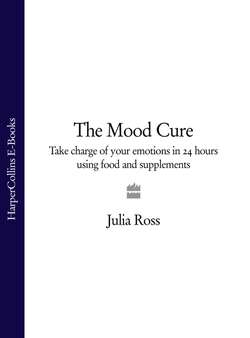Читать книгу The Mood Cure: Take Charge of Your Emotions in 24 Hours Using Food and Supplements - Julia Ross - Страница 53
Tips on Taking Serotonin-Boosting Supplements
ОглавлениеAt first, when you take your 5-HTP, tryptophan, or Saint-John’s wort, you’ll feel the difference, typically within fifteen minutes, but your mood will be noticeably elevated for only a few hours. That’s why most people need to take these supplements at least twice a day. Middle or late afternoon and nine to ten P.M. are usually the best times to take them, but take them earlier if your symptoms trouble you in the mornings. For children, use one-fourth to one-half the adult dose to start, depending on age.
As you nourish your brain’s serotonin zone with these amino fuels, your serotonin levels will rise, eventually to capacity. After that you’ll be able to count on improved moods all the time, yet you won’t need any more supplements to keep them that way. At some point in the next few weeks or months, your brain will give you a signal to let you know that you’ve done it—you’ve filled up on serotonin. How will you know? Maybe you’ll get too relaxed, even sleepy during the day; maybe you’ll get a mild headache after a dose. Most people, though, just forget to take their 5-HTP or other supplements after a while and realize that they feel fine without them. Yet those same people, in the first few weeks, would immediately have felt their moods plummet if they’d skipped a dose. Carefully check your low-serotonin symptoms on the Mood-Type Questionnaire over the next few weeks and months to see if your brain has normalized. It could happen surprisingly soon. For example, we’ve had a few clients whose irritability disappeared on 5-HTP, only to come back a few weeks later. When they cut back on their 5-HTP, their mood improved again. Their serotonin depletion was minor, and the 5-HTP had corrected it very quickly. This reverse effect is called “serotonin syndrome,” but it’s actually a phenomenon that can happen with any nutrient: when you take the nutrient, at first, if you’re deficient, you feel better. Later, if you get too much of the nutrient, the symptoms that result are the same as those you had when you were deficient.
Once something like this happens to you, you’ll take your pro-serotonin nutrients only on an as-needed basis. That’s assuming that you’ve been, and continue to be, eating plenty of tryptophan-containing protein foods. If not, you’ll end up taking supplements for a longer period of time, and your overall health will suffer from lack of protein. I suggest that you briefly stop taking your 5-HTP after you complete each bottle to see if you still need it or not. If your dark cloud rolls back in, you’re not yet ready to stop. Check again after the next bottle.
If you get no reaction, good or bad, from these supplements, your thyroid may be too sluggish to perform its job of converting nutrients into serotonin in your brain. Low thyroid is a well-established factor in depression. To explore the possibility in your own case, read the thyroid section in chapter 4, on page 65. In this case you may do best on Saint-John’s wort, which, like antidepressant drugs, does not require the assistance of thyroid hormone to raise serotonin levels. If even Saint-John’s wort does not help, the only alternative I know of is antidepressant medication, which you might need to use at least until you get your thyroid repaired.
You might also need to explore another condition called “pyroluria,” which can make it hard for the brain to utilize pro-serotonin nutrients. You can read more about pyroluria on page 303 in the “Resource Tool Kit.”
Note: The solution to any adverse symptom that crops up after you’ve started a supplement is to stop taking the supplement right away and review the suggestions in chapter 10 on page 207.
